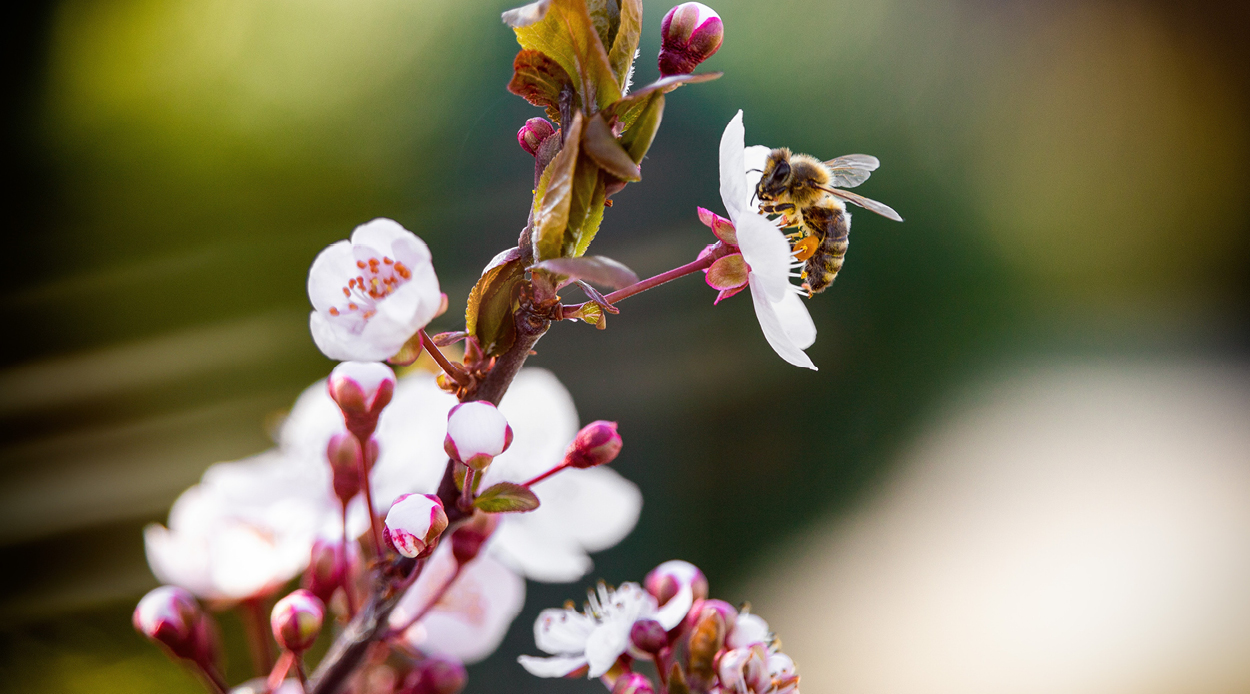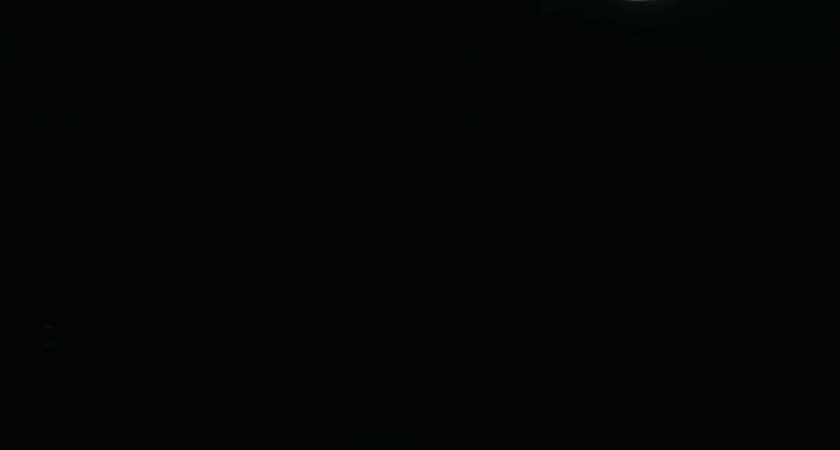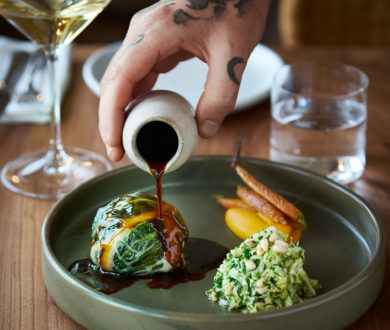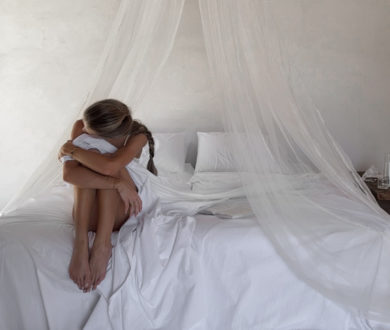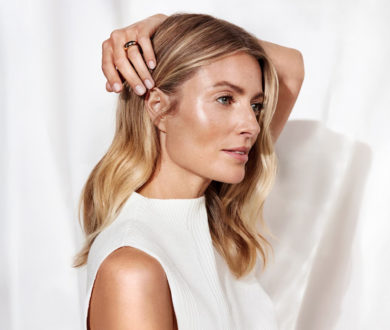Have you ever stopped to really think about the role bees play in our day-to-day lives? As they’re responsible for most agricultural and horticultural pollination globally, there can be no overstating how important bees are within our entire ecological system. They also make a variety of products humans consume and use, the most obvious being honey and wax, plus propolis and royal jelly.
Due to habitat loss, diseases, parasites, pesticide poisoning and the effects of climate change, the global bee population is declining and needs our help to survive — which seems only fair seeing as we’re the ones responsible for their plights.
Here in Aotearoa, September is Bee Aware Month. Coordinated by Apiculture New Zealand to bring awareness to the importance and the struggle of bees, Bee Aware Month is all about sharing ways in which to support our local bee population.
From properly-certified honey to plants bees love, here we hope to provide inspiration for you to do your bit in helping our vital winged friends.
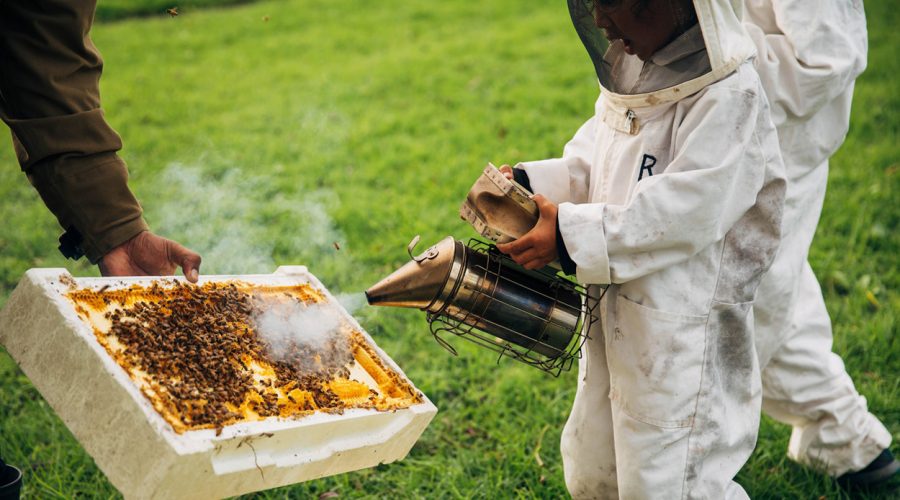
SUPPORT BEE-FRIENDLY BUSINESSES
Ponsonbees
In 2019, duo Sam Allen and Hohepa Rutene created Ponsonbees, a revolutionary beehive business that gives Aucklanders the chance to own their very own colony of honeybees. It is a setup that incites a simple quid pro quo: the bees are graced with a nice, safe home, and in return, the owners receive fresh honey and a consistently pollinated back yard.
For the Love of Bees
Through workshops, community events and talks, For the Love of Bees educates Aucklanders on the environmental issues at hand and works to develop solutions to save the bees. Since the initiative’s beginnings back in 2016, Sarah Smuts-Kennedy and her dedicated team have planted sets of hives in two inner-city, public parks — Myers Park and Victoria Park — the latter of which facilitates a free, weekly bee-keeping school and a gardening teaching hub for local children.
Bees up Top
Founded by couple Jess and Luke, a duo of passionate urban beekeepers, Bees up Top aims to increase New Zealand’s bee population by supplying healthy, happy hives to urban areas, and to educate our future generation on the importance of keeping the little winged workers around. Rescuing bee swarms before the exterminator is called in, Bees up Top re-homes them, and also extracts the honey collected by said bees, presenting it to the urban hive custodian.
Did you know: Worker bees produce about 1/12th of a teaspoon of honey in their lifetime.
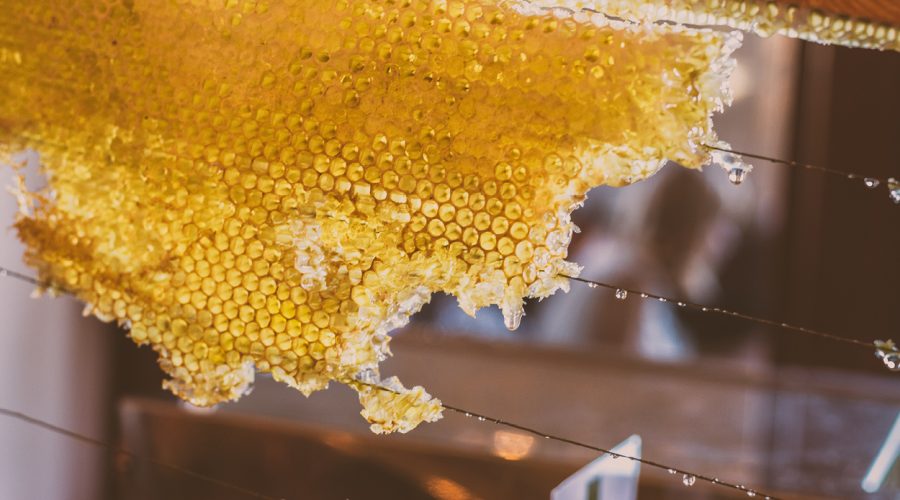
HELPFUL HONEY
Many of us might view honey as just another delicious spread or sweetener, but there’s far more to honey than just what ends up in a container on the supermarket shelf. Mānuka honey in particular is prized the world over for its medicinal purposes, and because it’s so rare, reportedly over 80 percent of the mānuka honey sold in the world is fraudulently labeled as such.
Therefore, it’s important to utilise the power of your dollar and support businesses that treat bees with care and respect, as well as being honest when it comes to the contents of the jar. As well as stocking a range of high quality honeys, Huckleberry organic grocer makes its own Mānuka blend harvested carefully from Northland honey bees. Comvita is another well-regarded New Zealand brand, with all its UMF® Manuka Honey able to be traced to its source. Always do your own research to ascertain whether what you’re buying is genuine.
Did you know: A honey bee must visit about 4 million flowers to produce 1kg of honey.
WHAT TO PLANT
Planting large clusters of a single type of plant will attract bees to your garden. New Zealand website Trees for Bees has a full list of bee-friendly plants from herbs and kitchen plants, to ornamental flowers and trees. The selection includes basil, pot marigolds, lavender, apple trees, Michaelmas daisies, NZ jasmine, harakeke (NZ flax) and many more.
Find the full list and more tips here.
Did you know: Bees have been producing honey for at least 150 million years.
HYDRATION STATION
Give a tired, thirsty bee a hand by putting out fresh, pesticide-free water for them to sip. You can put pebbles or a twig in the water for them to rest on while they rehydrate.
Did you know: One beehive of honey bees can produce up to 150kg of honey per year.
PESTICIDE PRACTICES
Ideally, we wouldn’t spray our plants at all, but if pest or disease-control is urgently needed then there are a few guidelines you can follow. Firstly, do your research as to whether spraying is absolutely necessary. If it is, make sure to not spray when the plants are in flower, or when bees are present. Very early morning or at sunset, even after sundown, are best times to spray plants if you need to, as bees will be in their hive.

